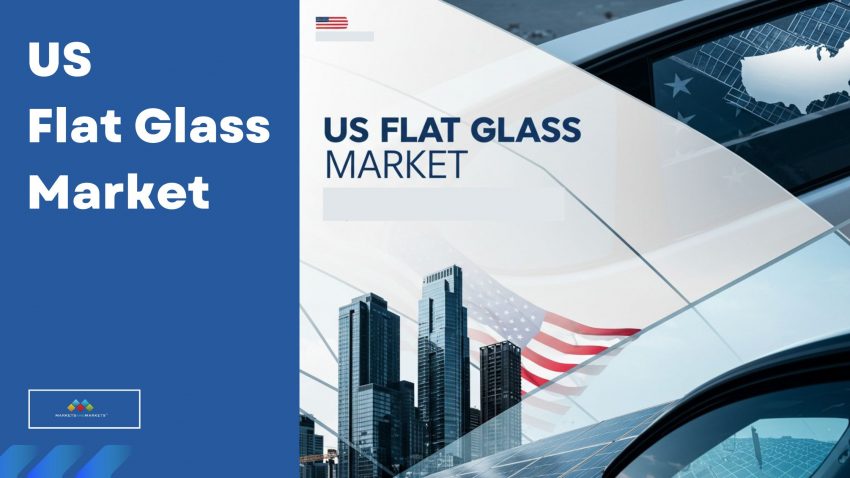The flat glass market in the US is driven by rising demand from solar power and automotive industry needs followed by energy-efficient building construction. The effort to create sustainable and energy-efficient buildings drives industries to use smart glass together with low-E glass as features that minimize energy usage. Flat glass demand continues to rise through the growing automotive sector since these products play essential roles in automotive windshields, windows, and sunroofs. The market drives up flat glass demand because of solar power technology advancements coupled with increasing solar power implementation requirements. The flat glass market received enhancements through technological glass manufacturing advances, specifically in tempered and laminated glass variants that offer increased durability alongside safety and insulation capabilities. The market demand for high-performance flat glass continues to increase because of government backing for sustainable green building programs and renewable energy projects.
The US flat glass market was USD 17.85 billion in 2024 and is projected to reach USD 27.62 billion by 2030, at a CAGR of 7.6% between 2025 and 2030.
The float glass segment is anticipated to be the largest segment of the US flat glass market during the forecaste period in terms of value.
Float glass accounted for the major share of the US flat glass market in 2024. Float glass is a high-quality, smooth, and uniform glass widely used in US construction, automotive, and solar industries. The country’s growing demand for energy-efficient buildings and advanced glazing solutions has driven market growth, with major manufacturers investing in innovative coatings and sustainable production methods. Government regulations promoting energy conservation further support the expansion of the float glass industry in the US.
Toughened glass accounted for the largest share during the forecaste period in terms of value.
Toughened glass is expected to dominate the US flat glass market in terms of value during the forecast period. The demand for toughened glass from the construction and automotive industries is the major driver for the market. Increased infrastructure projects, shifting toward energy-efficient buildings, and expanding the electric vehicle and solar industries are driving higher consumption. Companies such as NSG Group, Vitro Architectural Glass, and Guardian Glass are expanding production capacity to meet this growing demand.
Construction and infrastructure held the largest market share for the US flat glass market by end-use industry in terms of value.
The construction & infrastructure accounted for the largest share of the overall flat glass market in 2024 in terms of value. Flat glass plays a key role in modern architecture, where large glass panels are favored for their esthetic appeal and ability to provide natural light. It is also essential in energy-efficient buildings, with products like low-E glass helping to reduce heating and cooling costs. Its durability and safety features, such as laminated and tempered glass, make it ideal for structural applications. As urbanization and infrastructure development continue to grow, the demand for flat glass in new constructions and renovations remains high.
This dominance is attributed to well-established flat glass manufacturers such as Behrenberg Glass Co., Guardian Industries, Cardinal Glass Industries, Inc., and Gillinder Brothers, Inc. These companies manufacture various flat glass products that serve a wide range of end-use industries.
Access in-depth market analysis, Download the PDF brochure
Key players
Prominent companies :
- TAIWAN GLASS IND. CORP. (Taiwan)
- CSG HOLDING CO., LTD. (China)
- Fuyao Group (China)
- Nippon Sheet Glass Co., Ltd (Japan)
- Saint-Gobain (France), Sisecam (Turkey)
- Central Glass Co., Ltd. (Japan)
- AGC Inc. (Japan), Trulite (Georgia)
- SCHOTT (Germany)
- Vitro (Mexico)
- Flat Glass Group Co., Ltd (China)
Conclusion :
The US flat glass market is on a strong growth trajectory, fueled by rising demand from solar energy, automotive innovations, and energy-efficient construction. Technological advancements in float and toughened glass, combined with government support for sustainable development, are accelerating adoption across end-use industries. With major manufacturers expanding capacities and investing in eco-friendly production, the flat glass sector is set to play a pivotal role in shaping future-ready infrastructure and mobility solutions.

